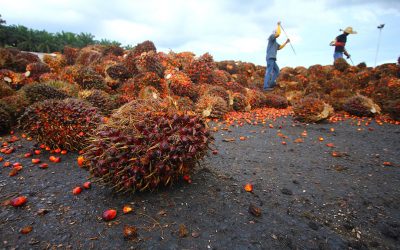GM approval system in EU too slow for Biotech firms

Europe’s biotechnology industry has warned the European Commission that agricultural imports vital to EU food security are increasingly being put at risk, due to the slow pace of the bloc’s approval system for genetically modified (GM) crops.
In a report presented to EU policymakers, biotech association EuropaBio said the speed of GM crop authorizations in Europe is slowing – even as governments worldwide seek to step up the pace of their approvals.
"The EU authorization process for GM products takes substantially longer than comparable systems, despite the fact that government processes around the world to assess the safety and impact of GM products are essentially the same," it said.
EU policy on GM crops has long been politically fraught, with a majority of consumers opposed to modified foods, but the bloc reliant on imports of about 30 million tonnes of GM animal feed each year — equivalent to 60 kg per person.
Too long process
EuropaBio estimates the EU’s approval process takes 15-20 months longer, on average, than in the three top global exporters of GM crops – the United States, Brazil and Canada.
The number of GM crops awaiting approval in Europe has risen from about 50 at the end of 2007 to 72 today – 51 for import and 21 for cultivation.
Based on current trends, EuropaBio said it expects more than 90 products to be pending approval by 2015.
Only two GM crops are currently approved for cultivation in Europe, compared to 90 in the United States and 28 in Brazil.
As well as blocking EU farmers from growing GM crops, the lack of approvals increases the risk of import disruptions due to contamination with unapproved GM varieties, the report said.
In its report, EuropaBio urges the European Commission, which oversees GM crop approvals, to set targets for reducing the backlog of applications.
Political impasse
The Commission said its own analysis of GM approvals found the delays were not as significant as stated by EuropaBio and that it gave extra priority to cases that could disrupt imports.
"The Commission pays particular attention to authorizations which can have a major impact on trade, and looks for efficiency gains whenever they are possible," EU health and consumer spokesman Frederic Vincent said.
EU environmental groups argue that pro-GM countries in other parts of the world cut corners in safety assessments, and that if anything the EU should beef up its approval system.
The European Commission drafted rules last year to allow EU governments to decide themselves whether to grow or ban GM crops, which could speed up the process. But opposition from members including France, Germany and Britain – and the biotech industry itself – stalled talks on the plans.
The impasse coincided with a fall in the number of GM crop authorizations proposed by the Commission for approval by governments.












